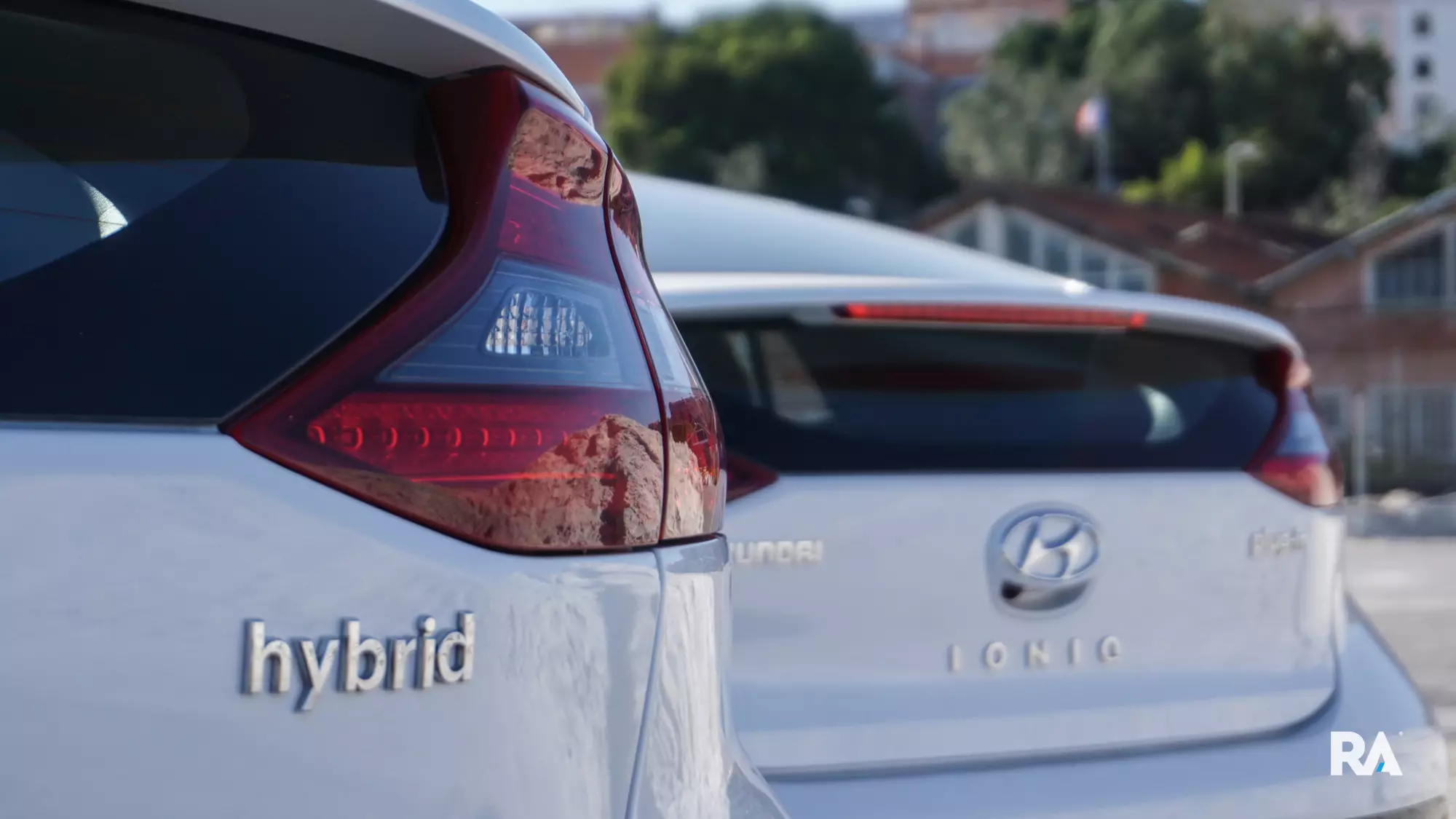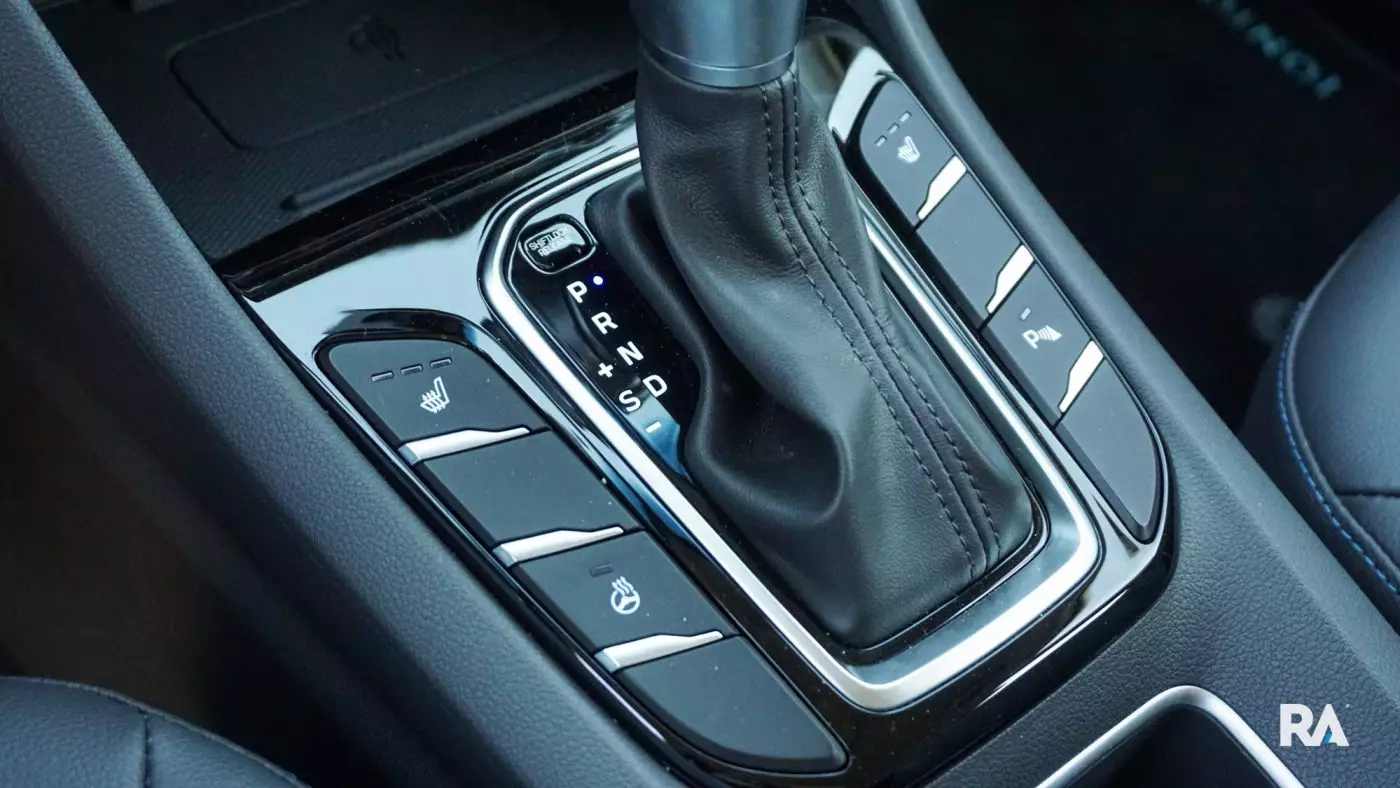For a week, the Razão Automobile park was dominated by three very similar models. We talk about the Hyundai Ioniq in the versions Electric, Plug-in and Hybrid.
Like the human twins, also in this “Ioniq trio” the physical similarities help to hide the differences in character. Although they all adhere to the same philosophy: maximum energy efficiency, concern for the environment and ease of use, these Ioniq are not all the same.
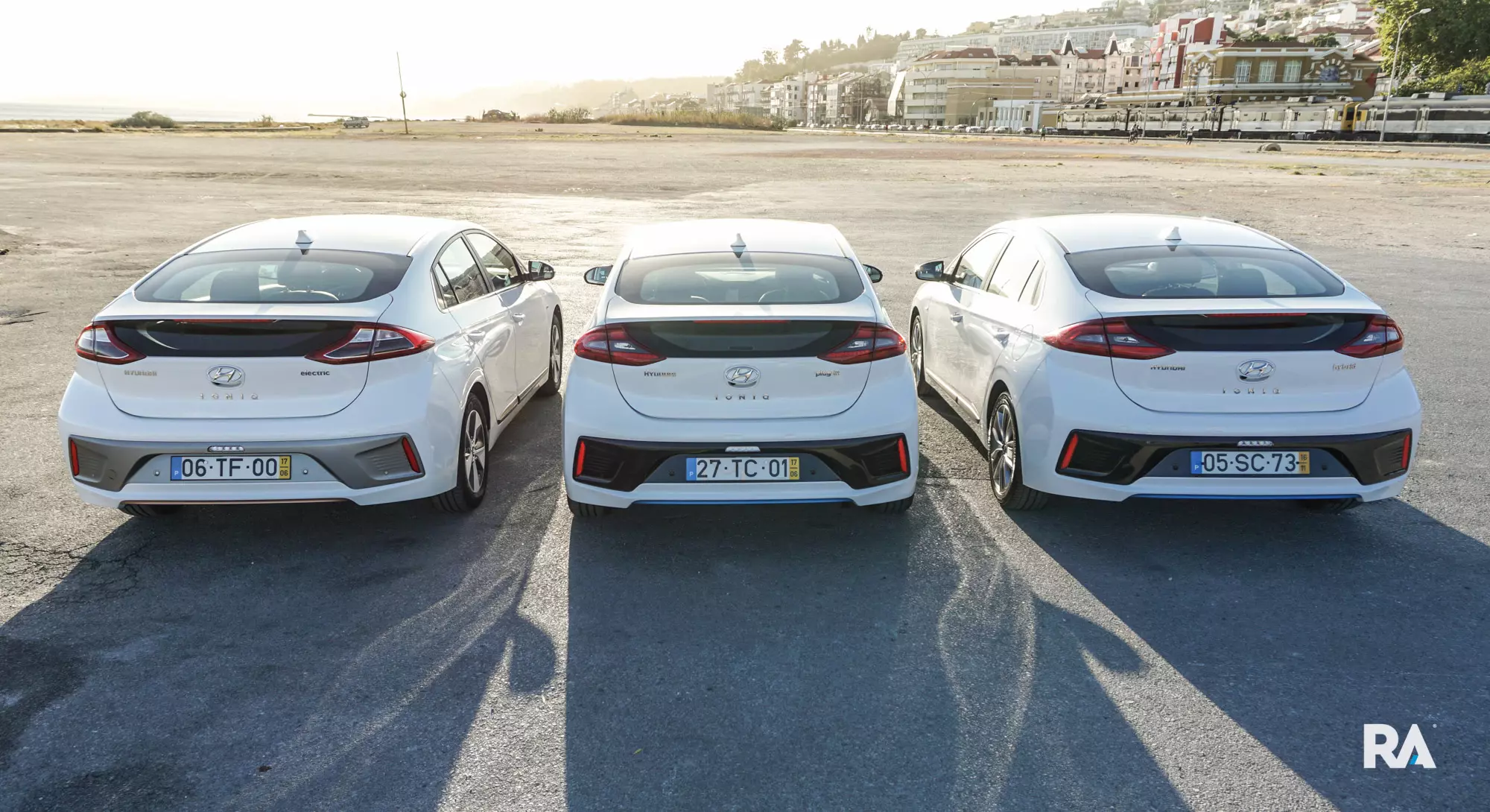
Which Hyundai Ioniq is right for you? It is the starting question for this comparison. But first let's get to the similarities.
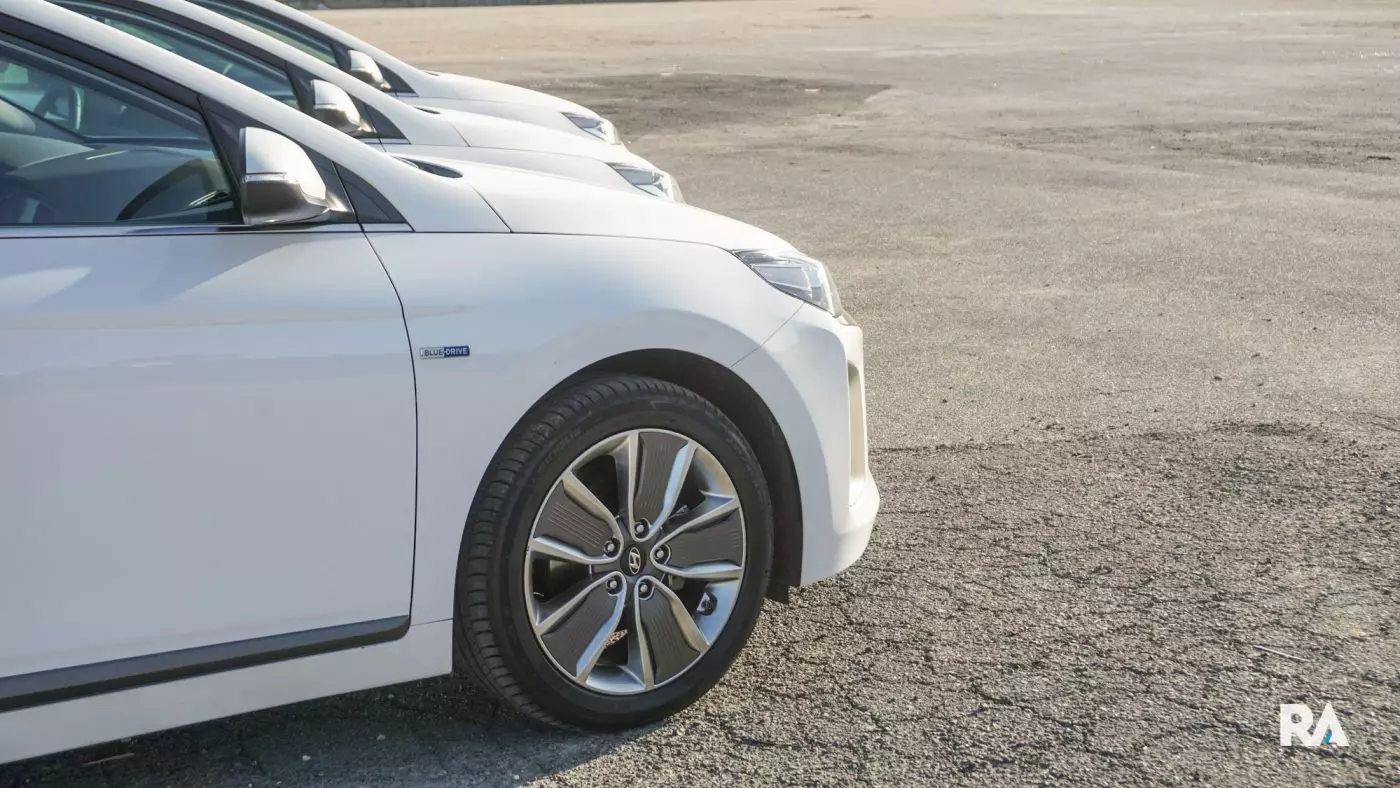
All the same? Not really…
The Hyundai Ioniq Hybrid, Electric and Plug-in not only share the same design – slightly different in the Electric version, which dispenses with the conventional grill to cool the combustion engine (which it doesn't have) – and the same philosophy as we wrote above. Identity sharing also extends to the platform and most components, most of which are exclusive to the Ioniq range.
Imagining that the combustion engine is Batman, in this case the electric motor takes on the role of Robin, that is, it is just there to help.
Thanks to this holistic approach to the Ioniq family, Hyundai not only achieved important economies of scale, but also managed to simplify the selection process. Rather than presenting three distinct models with three different mechanics, Hyundai focused the selection process on the essentials: price, autonomy and usage costs.
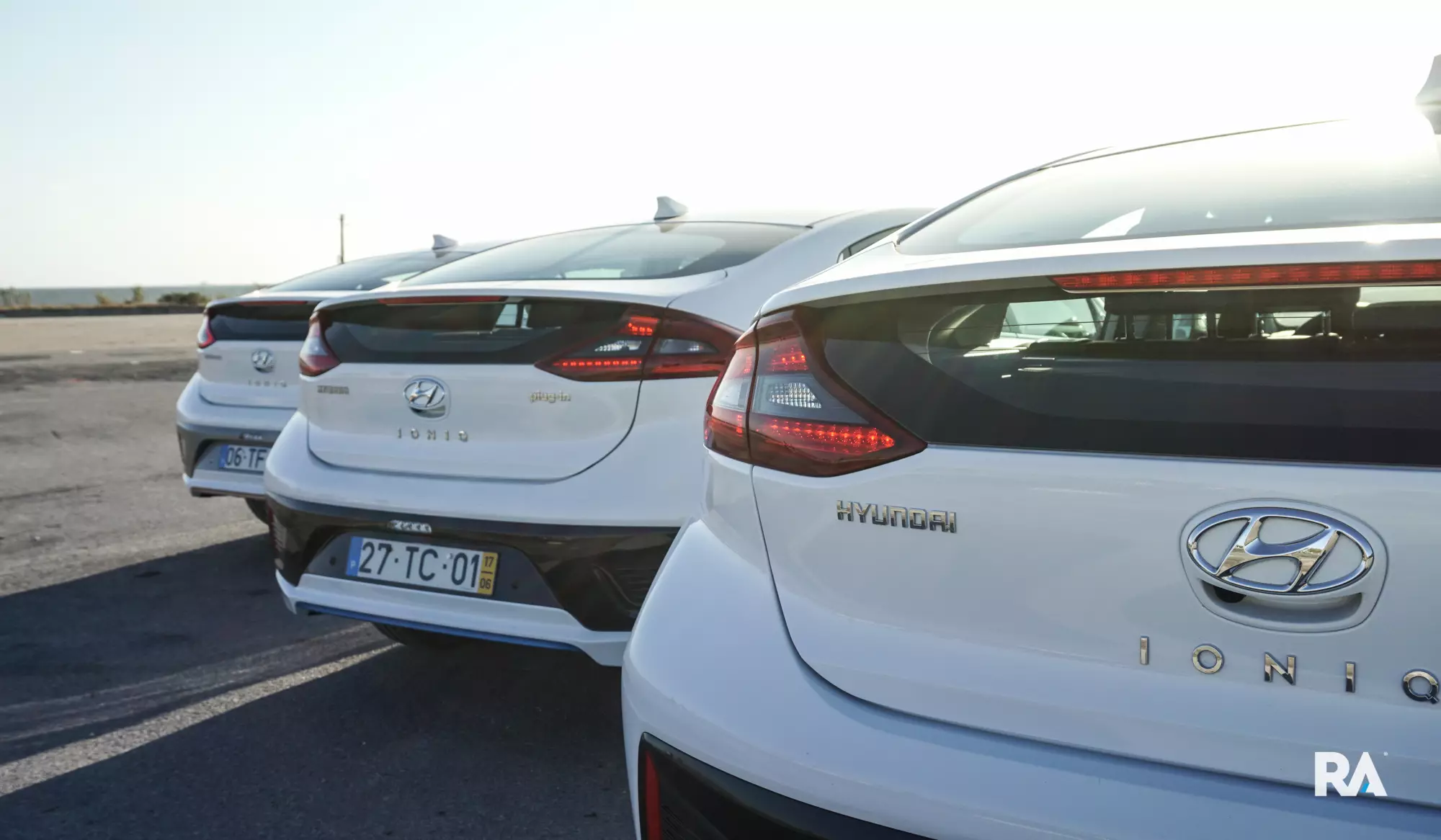
Inside, the similarities continue. The interior has a remarkable construction rigor, which only lacks the choice of some materials, which are not bad (they are not) clash with the general feeling that we were left with. There is more than enough space on board (including child seats), both at the back and at the front, and the atmosphere is pleasant. Less positive note for cabin soundproofing.
I don't know if due to the silence of the Ioniq engines or the poor sound insulation, the truth is that sometimes the rolling noise is slightly more audible than what we would have liked.

Hyundai Ioniq Electric
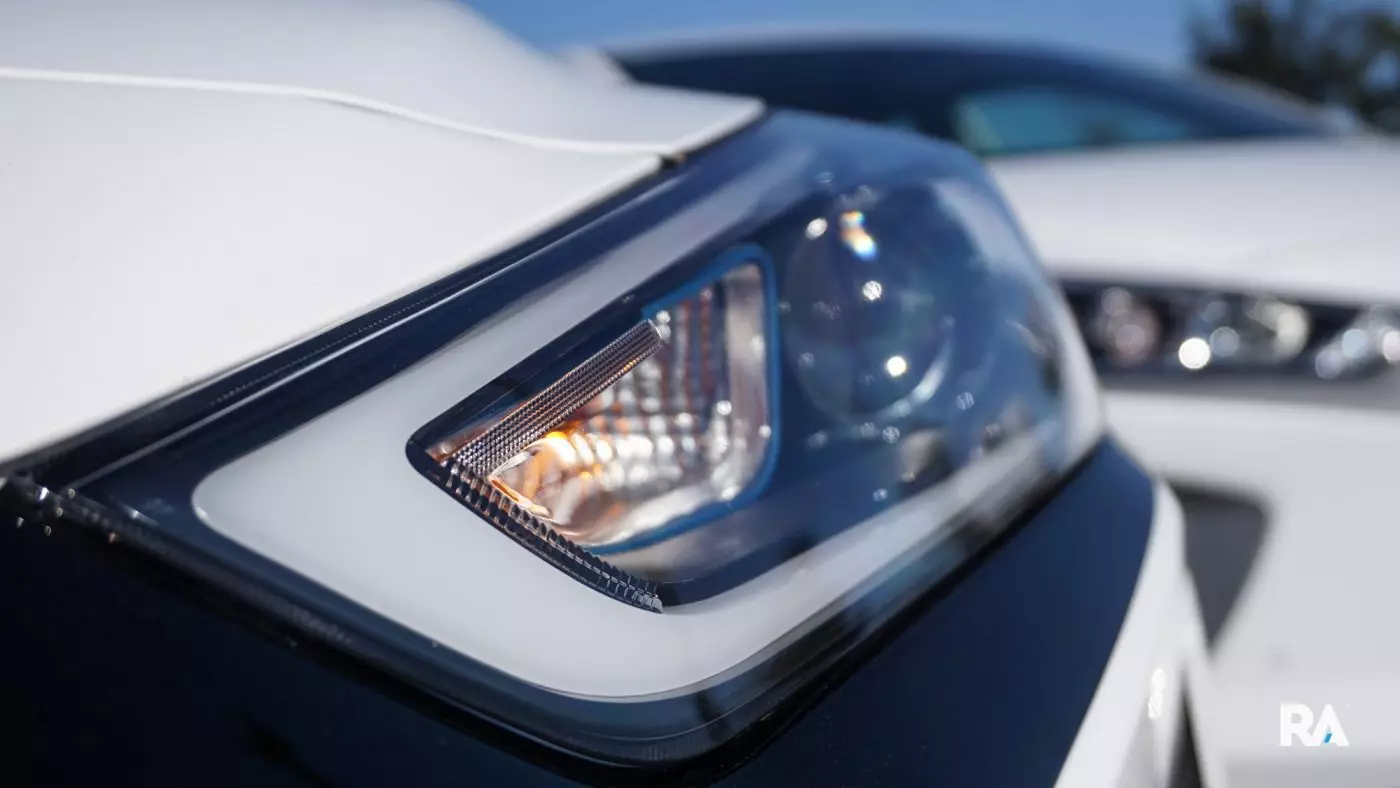
Hyundai Ioniq Hybrid

Hyundai Ioniq Plug-in
After the general presentations, let's talk about each Hyundai Ioniq separately. Objective? Understand what separates them. Let's start with the Hyundai Ioniq Hybrid.
Hyundai Ioniq Hybrid
Price. Let's start with the most «inexpensive» Ioniq. From this trio, the Hyundai Ioniq Hybrid it is the cheapest by a wide margin. The Hybrid costs 29,900 euros, 8,600 euros less than the Plug-in and Electric brothers (both cost 38,500 euros).
But the Hybrid is not only the cheapest. The Hybrid is also the one with the sharpest dynamic behavior of this trio.
In addition to being lighter than the Plug-in version (weighs 73 kg less than the latter) it also uses an independent suspension on the rear axle (on Electric, due to the placement of the batteries, we have a “simple” torsion axle). Adding to these differences, the Ioniq Hybrid is the only one that uses more generous tires – 225/45 R17 against more “ecological” 205/55 R16 of the rest.
The practical result is an Ioniq Hybrid that, as a result of the happy union between the 108 hp 1.6 GDI combustion engine with the 44 hp electric motor (combined power of 141 hp) consummated by the six-speed dual-clutch box, manages to print rhythms very interesting in everyday life.
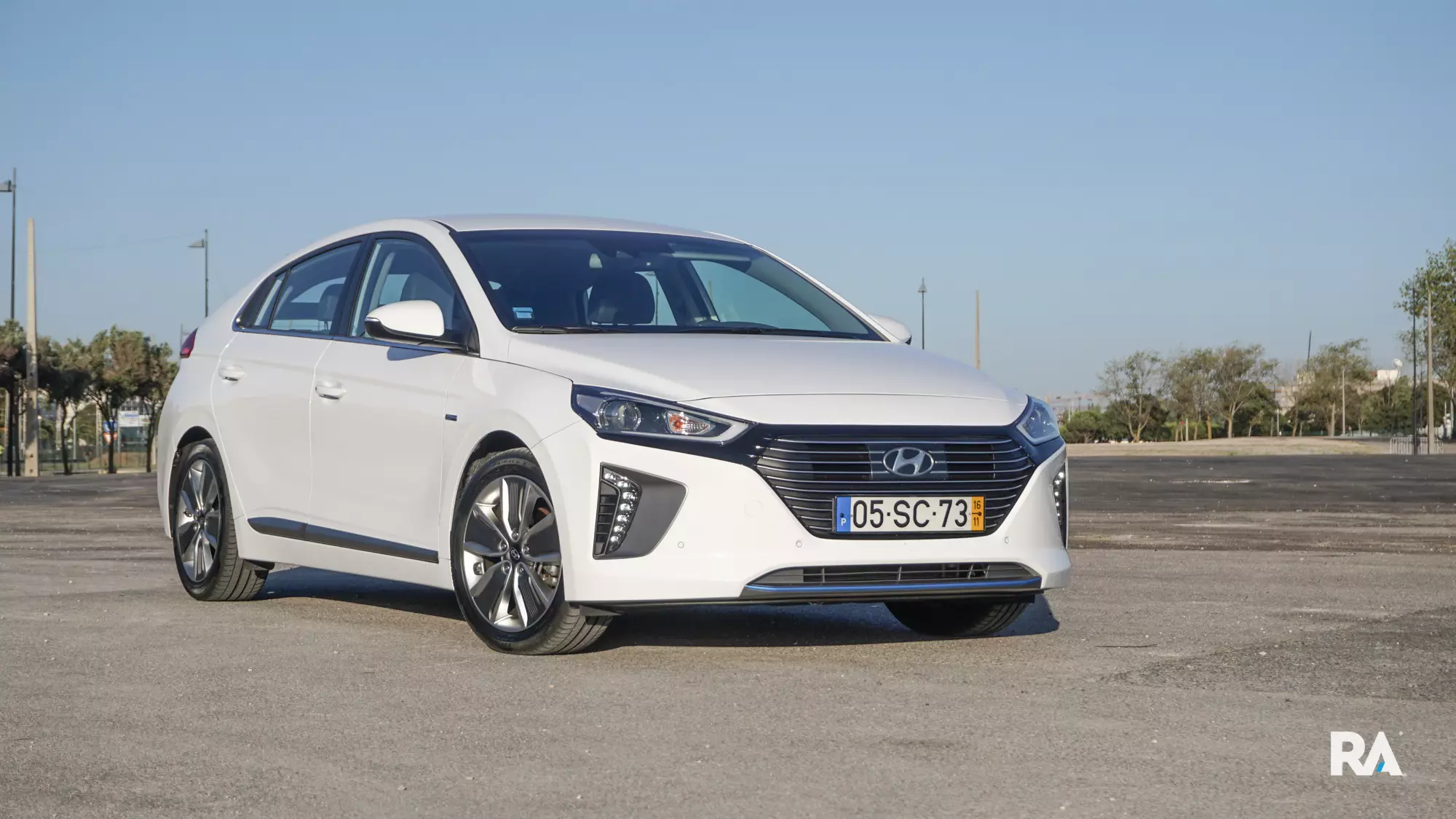
Anyone who wants to use all the power available must put the gearshift in S mode. With the gear in S mode, we automatically activate Sport mode. In Sport mode, the electric motor kicks in more forcefully and the accelerator is more sensitive to the movement of our right foot.
With the positive points in mind, let's go to the less positive points of the Ioniq Hybrid compared to its brothers. With the exception of starting, it is not possible to drive in 100% electric mode at all times. In this Ioniq Hybrid the electric motor plays a secondary role. Imagining that the combustion engine is Batman, in this case the electric motor takes on the role of Robin, that is, it is just there to help. The main protagonist is always Batman… sorry!, the combustion engine.
Electric's ultimate "card" may be the lowest maintenance costs.
Even so, the consumptions of this alliance «Batman and Robin» are very interesting (more so than some films in the saga…). On a mixed route, without major concerns with the imposed pace, it is perfectly possible to achieve averages in the region of 4 liters per 100 km.
Hyundai Ioniq Plug-in
Do you always have an outlet close by and do you usually travel long distances? Eventually the Hyundai Ioniq Plug-in is the ideal choice for you. It costs 8,600 euros more than the Ioniq Hybrid but allows to circulate in 100% electric mode for about 32 km thanks to the batteries with a capacity of 8.9kWh (against just 1.56kWh of the Hybrid).
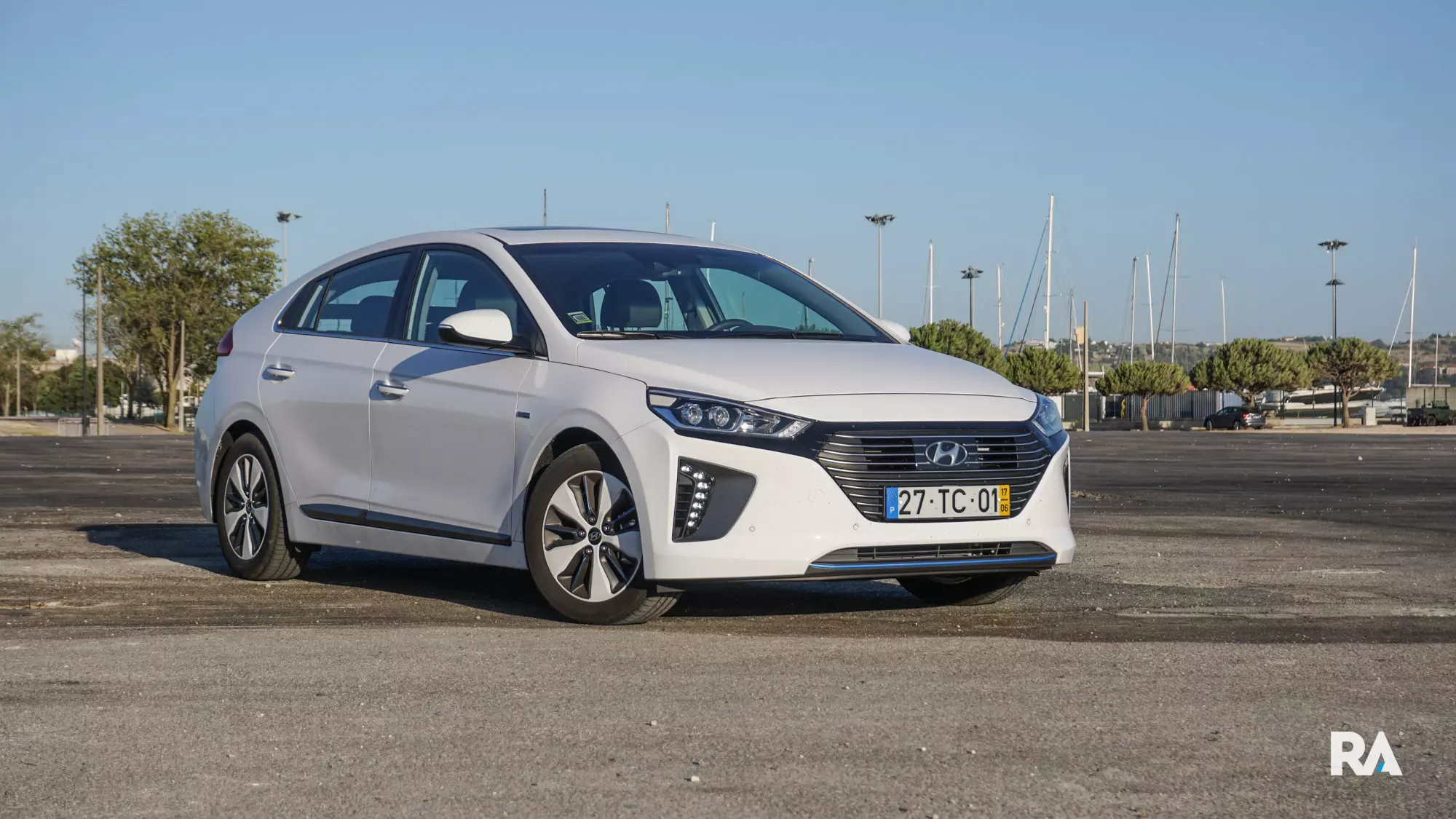
In this version, the electric motor is no longer a mere auxiliary to the combustion engine (despite being the same as the Hybrid) and is now able to move the 1550 kg of the Ioniq Plug-in alone. On the center console we have a button that lets you switch between 100% electric mode and hybrid mode. The choice is ours.
In terms of comfort, the differences to the Hyundai Ioniq Hybrid are virtually none. In terms of dynamic behavior, although it doesn't let its credits by the hand, it loses some points to its brother Hybrid. It's not serious… because those looking for this type of vehicle are not looking for performance, they are looking for safety and predictability of movements, and these are qualities that are transversal to the three models.
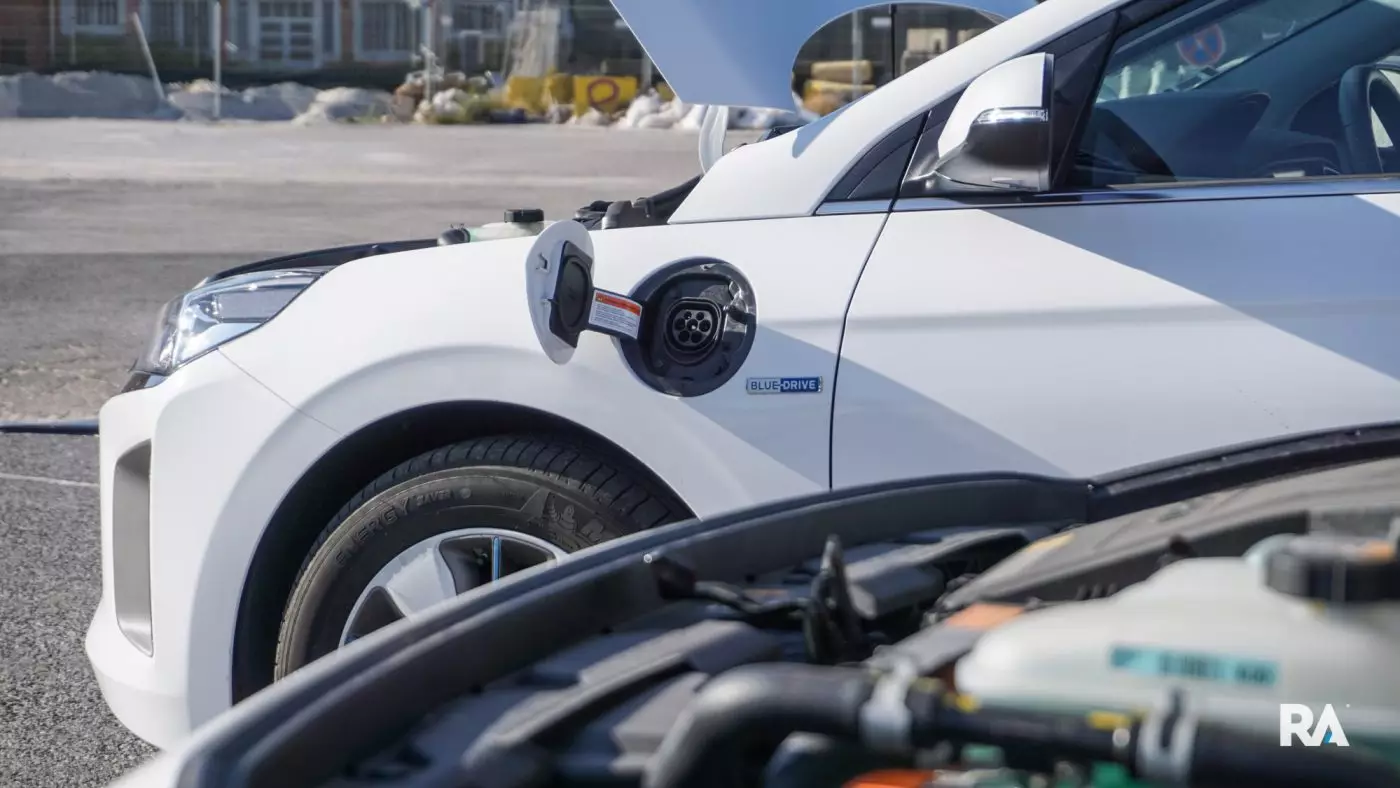
What is serious is letting the 8.9kWh battery run out, because then we can no longer enjoy the 100% electric mode of this version. This version only makes sense for those who travel a few kilometers daily (using 100% electric mode) but often need maximum autonomy (using hybrid mode). Otherwise you will hardly be able to reduce the 8,600 euros differential which separates this version from the Hybrid version.
On equal terms – that is, in terms of consumption – we are talking about a saving of 0.6 liters on a journey of 100 kilometres. Until you manage to recover the 8,600 euros difference, you will have to cover many kilometers. Depending on how many times you charge the battery in the socket, you may never be able to pay off the invested differential.
Hyundai Ioniq Electric
As we did in Ioniq Hybrid, so in Ioniq Electric we'll start with the most positive point of this version. As you may have already guessed (it's not difficult…) the great advantage of trams compared to their counterparts equipped with a combustion engine is the cost per 100 km – in this statement, we are not going to reflect the acquisition cost. In a little while we'll include this little big detail…
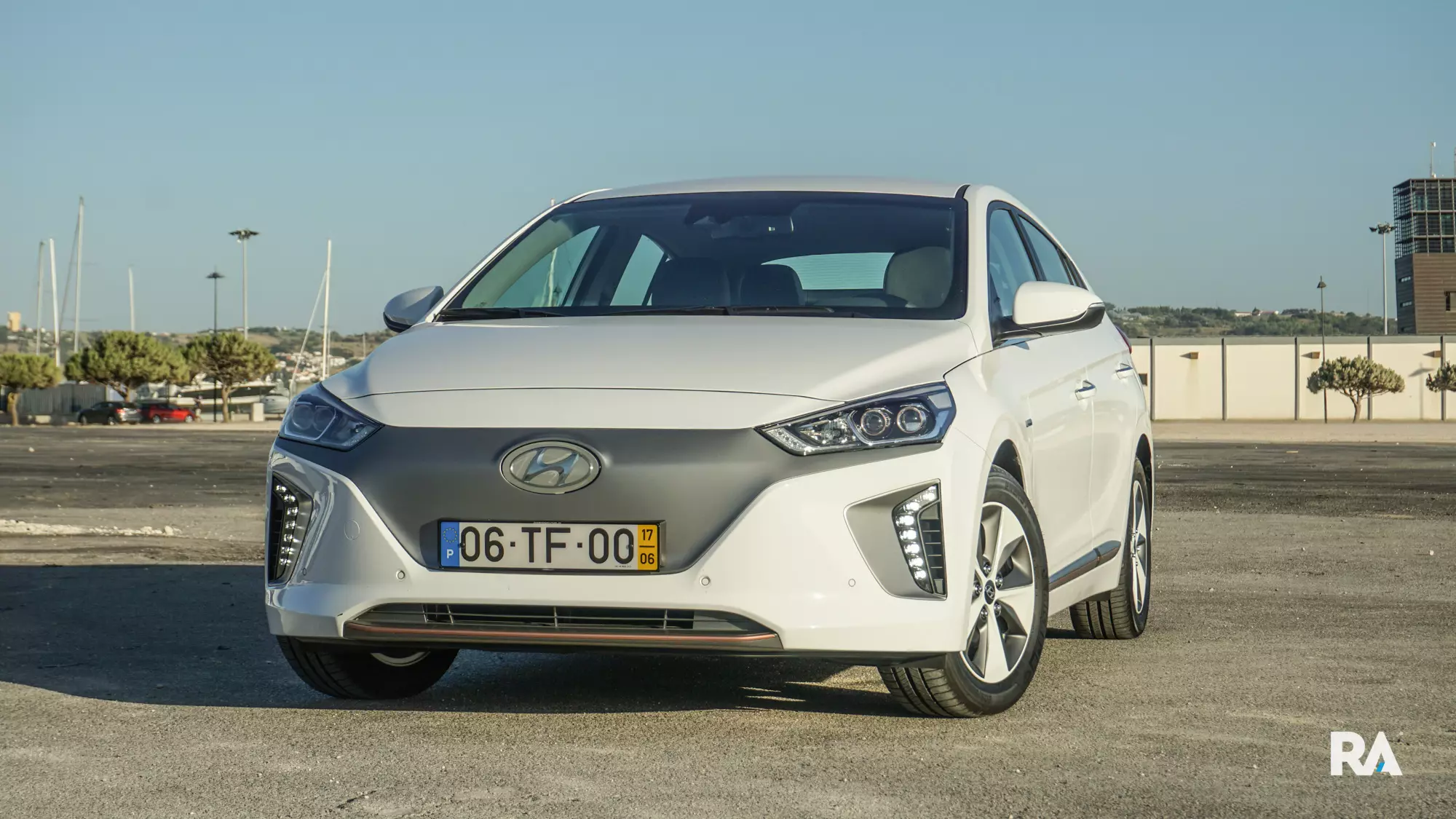
Let's assume a cost of 0.1635 euros of electricity per kWh – if you are an EDP customer, you can check your kWh cost here – and that Hyundai Electric consumes 13 kWh in a mixed use between city and national road. All in all, it costs us 2.15 euros per 100 km. Its brother Hybrid doesn't get such an interesting value. Assuming a consumption of 4.5 liters/100 km and a cost of 1.46 euros/liter (gasoline 95) we arrive at a less pleasant value: 6.57 euros for the Hybrid against 2.15 euros for the Electric. But don't forget that the Electric costs more than 8,600 euros and that value is enough to “buy” more than 150,000 km of autonomy.
Of course it's unfair for Electric to compare it to the Hybrid just based on acquisition cost and cost per 100 km.
Electric's ultimate “card” may be the lowest maintenance costs. The 120 hp electric motor and 295 Nm of maximum torque is virtually maintenance free. We can no longer say the same for the combustion engine of the Ioniq Hybrid or Plug-in.
Besides, there are things that are priceless. Namely the rolling silence and that instantaneous “kick” of electric motors – mainly in urban traffic.
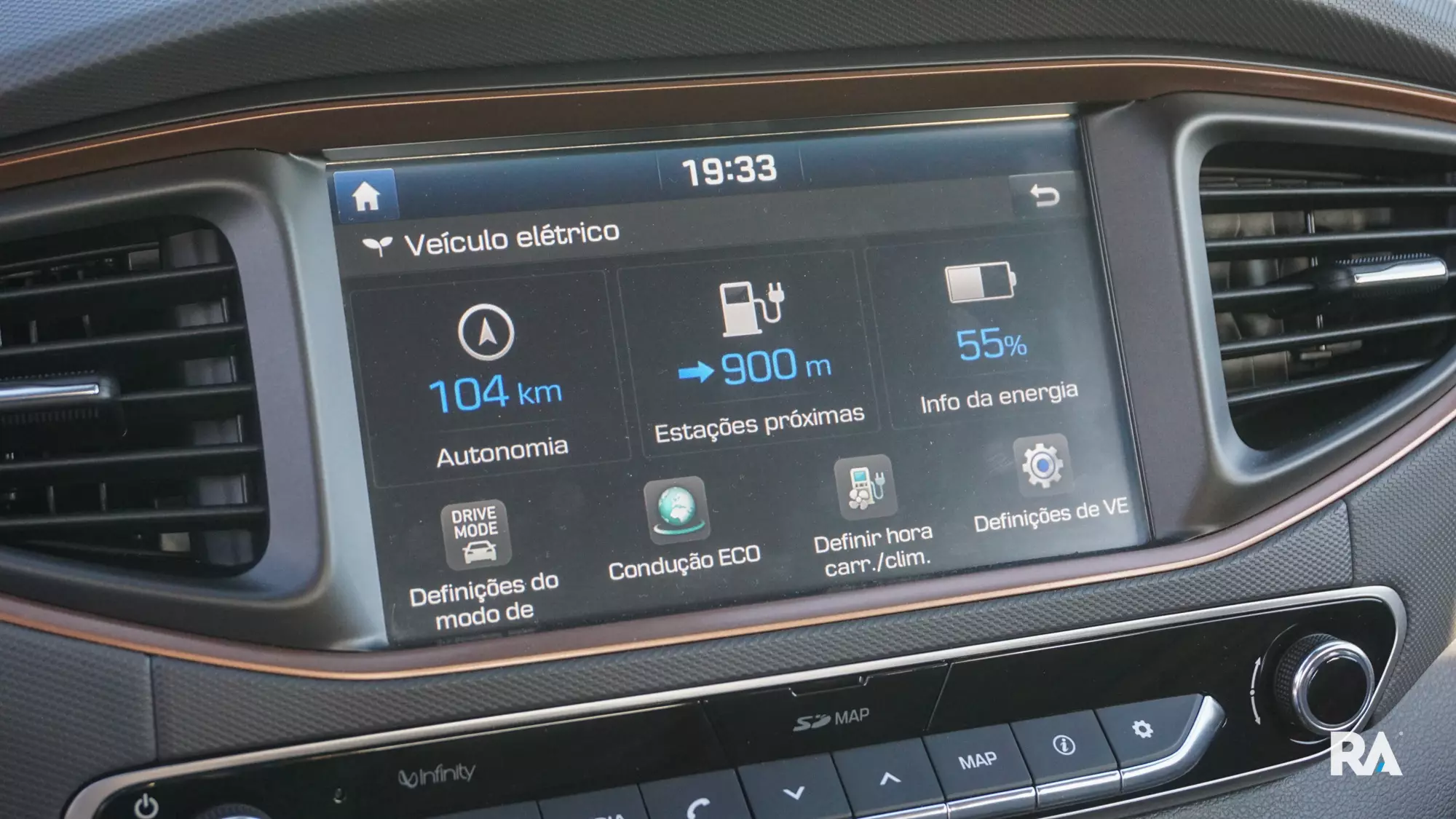
The big problem with the Hyundai Ioniq Electric is its autonomy, just over 200 km under "normal" usage conditions. There is a very interesting graphic (among a panoply of so many others) that sets us (through circumferences on the navigation system's screen) limits to where we can go with the available charge.
A feature that soothes the spirit of those who, like me, live with the fear of running out of charge.
Conclusion
The Hyundai Ioniq is a model that in any version (whether Hybrid, Plug-in or Electric) offers levels of comfort, performance and equipment on par (or even better) than the competition – we are talking, for example, of the Toyota Prius.
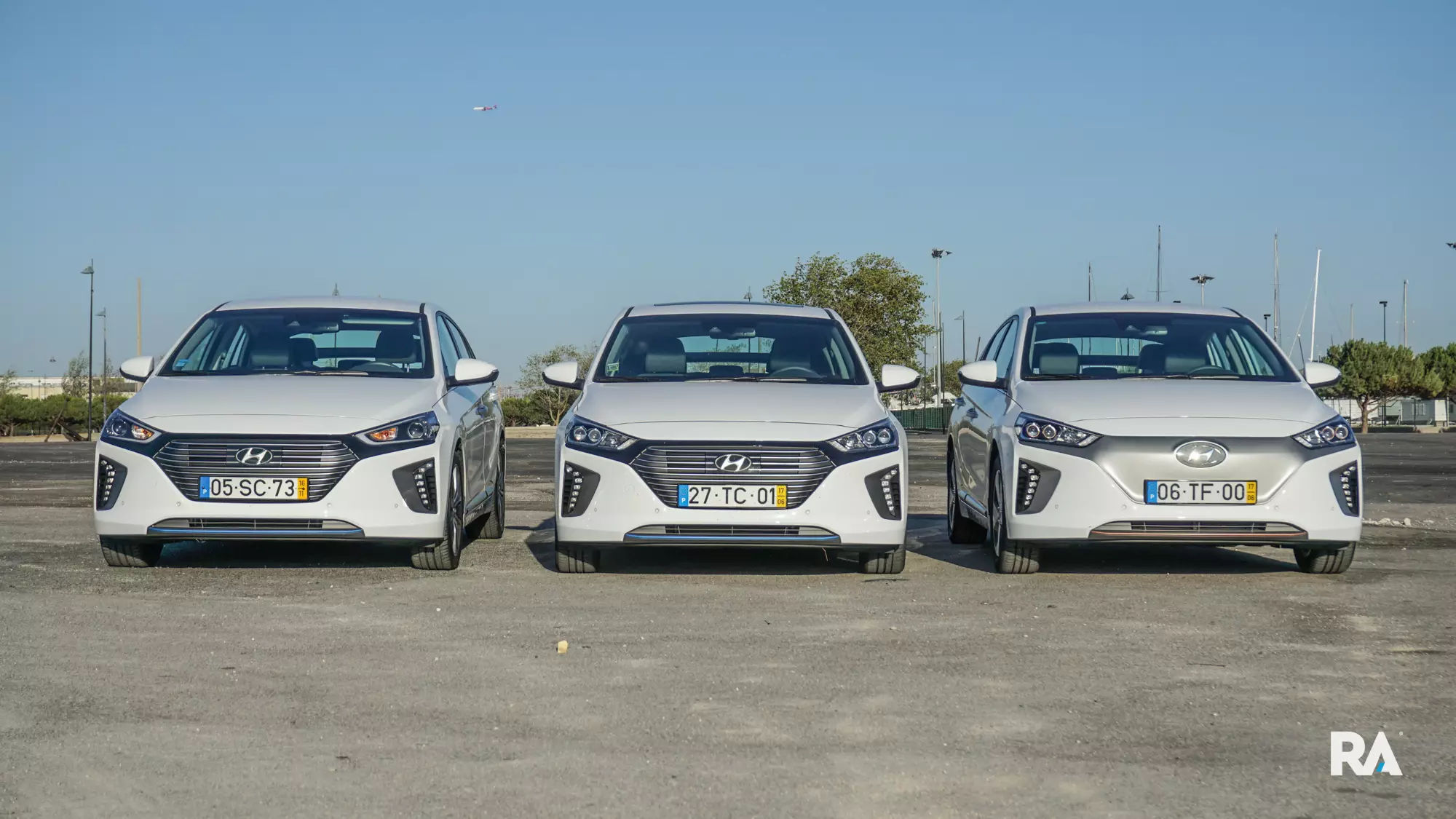
As we can see, the question “ which is the best Hyundai Ioniq for you? ” is a question that only you can answer.
If autonomy is not an issue, Ioniq Electric may be the best choice in the long run. If you fulfill daily short distance journeys, the Ioniq Plug-in is also an option to consider. But of all, the one that seems to get the best compromise is the Hyundai Ioniq Hybrid. The difference of 8,600 euros does just that… all the difference.
For companies, there are other benefits to take into account: the acquisition of electric vehicles allows deductions based on IRC, and this type of vehicle is exempt from autonomous taxation. In the case of plug-in hybrid vehicles, a reduction in ISV of up to €562.50 is determined. These also benefit from a lower Single Tax on Circulation (IUC), between €7.91 and €35.87, and do not pay for parking in some cities.
By this time, the incentive of 2,250 euros, granted by the State for the acquisition of electric vehicles, will also have exhausted. An incentive limited to the first thousand people to provide proof of purchase of an electric car since January 1, 2017.
| hybrid | plug-in | Electric | |
| combustion engine | 1.6 GDI (108 hp) | 1.6 GDI (108 hp) | N.D. |
| electric motor | 43 hp | 43 hp | 120 hp |
| DTC box | Yea | Yea | No |
| Drums | 1.5kWh | 8.9kWh | 28kWh |
| Price | €29,900 | 38,500€ | 38,500€ |
That said, perhaps in a next generation, in which the autonomy of the Ioniq Electric is greater and the acquisition cost lower, the result of this comparison will be different. But for now, the Batman (combustion engine) is still the main player in a fast (and constant) changing car market.
